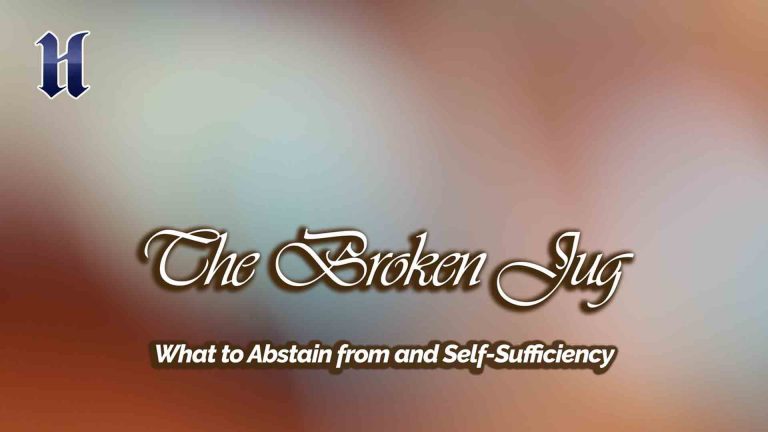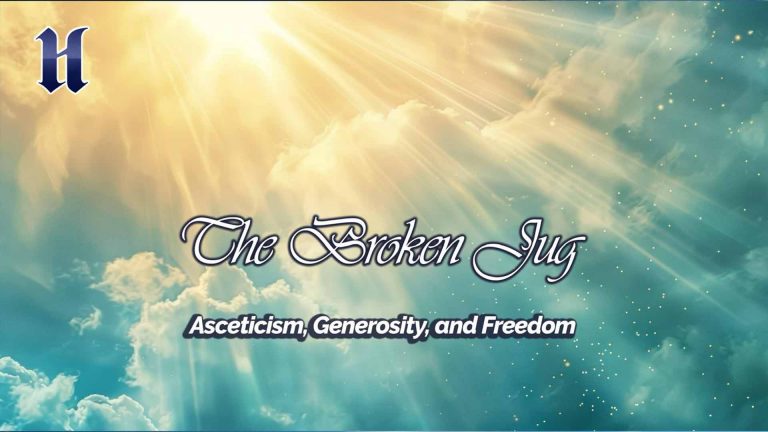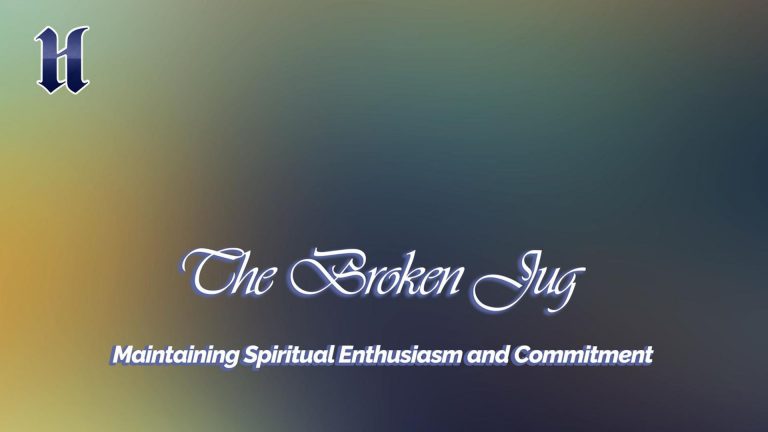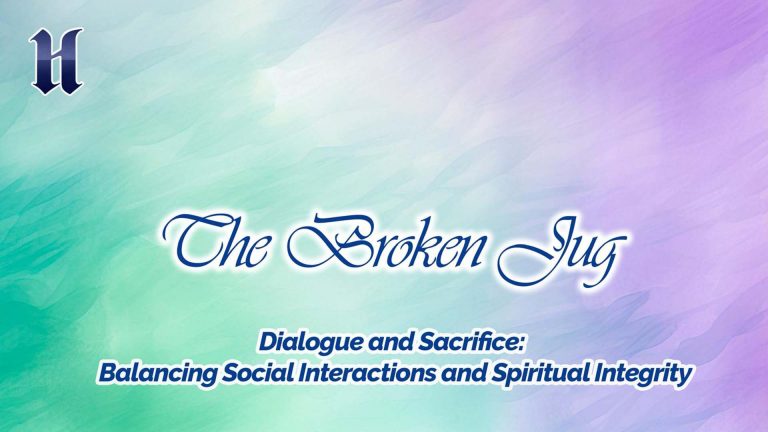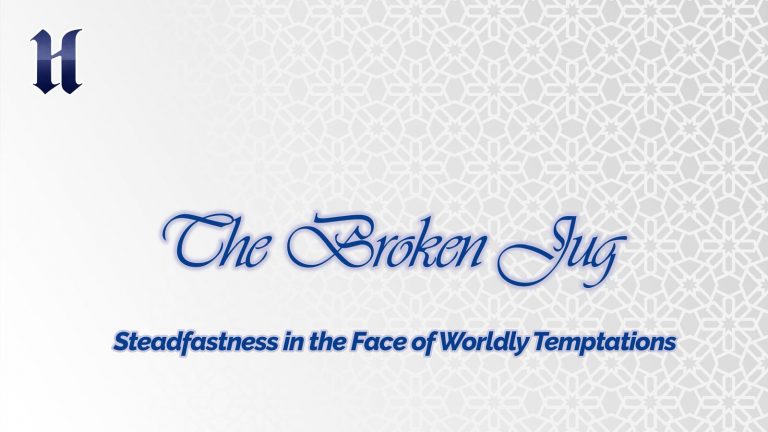Question: What are the duties and responsibilities that fall to believers in the face of ruthless attacks that stem from feelings of envy and jealousy?
Answer: First, it needs to be pointed out that acts of wrongdoing and injustice stemming from intolerance and jealousy never ceased to exist in the past, and they will continue to exist in the future as well. Although Prophet Adam’s son was born into a home that was blessed with Divine revelation, he was seized with jealousy and intolerance. He became dizzy with the feeling and consequently murdered his brother. Actually, Satan played his first trick with that and made him obey his word by working on this weak side in human nature. The first person who comes to mind as a Prophet killed by his people is Prophet Zechariah, peace be upon him. As it is known, many other Prophets who invited people to God were also slaughtered by their own people. Prophet David was put in a very difficult situation by his people, whom he had saved from disgrace. They slandered that great Prophet with a shameful deed which we would not even imagine about an ordinary person. As a consequence, he was forced to take an oath by placing his hand on the ark. With falsehood and slanders, a wrong image was formed, portraying Prophet Solomon as—God forbid—a spiritist and sorcerer. The Pride of Humanity, peace and blessings be upon him, as well, slandered as a—may God forbid—magician and oracle by people consumed by envy and jealousy who could not stomach his being honored with Divine revelation. In short, the Prophets, their companions, and so many others who came later on who strived on this righteous path faced different slanders, insults, and attacks. Similar troubles will continue to happen and those who serve on the path of Truth will face different ordeals, persecution, and slanders.
The Owner of Time Determines the Duration of the Test
What falls to the volunteers in the face of all of these is to meet the misfortunes that befall them with ease of heart, not complaining, and not even feeling bitter with those who cause these, and thinking that they deserve all of these. It is narrated that Hallaj al-Mansur was punished owing to the expression “Ana’l-Haq” he used in a state of spiritual immersion (istighraq) while describing that he felt a full manifestation of the Divine Names. In his painful state, he prayed to God in spite of being covered in blood as, “My God, I do not wish to give my last breath before You forgive those who did this to me!” These are the words of a great, magnanimous man. They have no difference from the following words of Bediüzzaman eight centuries later, “I also forgive those who sent me from one exile to another and who sent me to dungeons.”
Travelers on this path must know that they will continue to suffer from different tribulations in the future as well, and thus should never be upset and heartbroken. They should not sing lamentations for their troubles like some poets do, nor complain about destiny and Divine acts, nor leave a letter of complaint for the generations to follow. In the face of their troubles, volunteers must never criticize Divine destiny by asking, “Until when…?” Even if they cry sadly, they should know how to imprison their feelings in their heart, open up to God at times of privacy, but never should they let others hear these laments, because one who determines the duration of the test is The Almighty Owner of time. If you meddle with His affairs, you disorder your own affairs. A believer must be able to meet His every act with respect. Sometimes a manifestation of Majesty can bring suffering or a manifestation of Mercy can bring relish. What really matters is equally welcoming both. That is, a person should neither be joyful for a manifestation of Divine Mercy (Jamal) nor be upset for a manifestation of Divine Majesty (Jalal). Asking questions such as, “What did I do wrong so that all of these befell me? Why are all of these sufferings and troubles always finding me? Why are these tribulations? Why are all these baseless rumors? What is the reason for such intolerance and inability to stand us?” is an indication of being unaware of how the Divine Power operates. People could not even tolerate the blessed messengers and saints of God; is it so surprising if they cannot tolerate you?
Do Not Worry about What They Say; Double Your Speed on the Righteous Path!
A sultan of words put it so beautifully:
If a stone from a slingshot hits a golden bowl,
Neither does the stone gain value, nor the bowl loses value at all!
If you are a golden bowl too, let others throw stones at you, or criticize you with baseless claims. The responsibility that falls to the volunteers before what some persons commit, is not caring about all of these and continuing to walk on the righteous path. They should not be entangled with the improper words and criticisms directed to them and not disorient their mind with such things. On the contrary, they must concentrate all of their attention and efforts to what they are supposed to carry out, try to fulfill their duty in the best way, leaving the result to God. With respect to one of the qualities of the new generation that He will raise, God Almighty states, “… they do not fear the censure of any who censures” (al-Maedah 5:54). All of these bring to my mind the following words of Muhammed Lütfi Efendi:
A lover of God talks of those who hurt.
Says, do not be hurt by those who hurt,
For the one who is hurt lacks perfection,
In comparison to the one who hurts.
If you expect to have perfection in the next world, then you must not make any claims of having perfection in this one, as that is a sign of imperfection. A person’s having a sense of superiority and expecting praises and appreciation from others is an investment of bankruptcy in terms of the losses he or she will face in the next world. Those who consume the wholesome things God grants in the world will find themselves in the situation the Qur’an warns people against: “You consumed in your worldly life your (share of) pure, wholesome things, and enjoyed them fully (without considering the due of the Hereafter, and so have taken in the world the reward of all your good deeds)” (al-Ahkaf 46:20).
It is for this reason that believers should wait for the next world for the perfections God will grant them; they should be patient and forbearing here to receive the perfect blessings there. If they can manage to do that, nobody will be able to prevent acts of goodness by God’s permission. Given that the devoted souls who dedicated themselves to serving humanity continue their lives in a course of loyalty to their pledge of devotedness. Otherwise, the moment they give in to worldly desires such as buying a house, owning wealth, and investing for their personal comfort and future, God takes away the means of service in their hands and passes this task to a fresh generation of people who have not become weary, who have not degenerated, and who have not inclined to temptations of the world. In this respect, devoted ones must preserve their devotedness until the end.
Not Asking from Anyone Is the Greatest Credit
According to the accounts related in reliable books of hadith like those of Imam Bukhari and Muslim, God’s Messenger bought food from a Jewish merchant and left his armor in pawn until he could buy it back. The Pride of Humanity passed on to the Hereafter without being able to do so. Some time later, Abu Bakr paid the price, saved that blessed armor from pawn, and entrusted it to Ali ibn Abi Talib. The Paragon of Morality did not take debt from his Companions as it would not conform with his dignified stance of not asking from others. He considered that refraining to ask any worldly goods from them as a necessity of the principle of not asking wages in return for his mission of conveying the Divine message. He once more proved that he did not ask for the slightest personal benefit in return for conveying and representing the manifest religion, teaching people about the means of happiness in both worlds, and showing them the ways to Paradise, particularly to the Companions. He once more set a beautiful example for the inheritors of the cause of the Prophets.
Abu Bakr continued to milk his neighbors’ sheep for supporting his family, even after being elected as caliph. After some time, upon the insistence of some prominent Companions, he consented to taking a minimal payment from the state to support his family, giving up milking his neighbors’ sheep, and thus sparing more time to his duty of caliphate. Although it was hard on him to receive money for a service he carried out for God, he did it so that state affairs would not be neglected. In fact, his hands would shake while using that money. When he passed to the Hereafter, he left behind a little pot and demanded it to be delivered to the next caliph. When it was opened in the presence of the second caliph Umar ibn al-Khattab, there were some coins and a short letter. It read: “The money you spared for me was more than necessary on some days. I felt ashamed against God to spend that; as it belongs to the people, this amount must be added back to the state treasury.” Umar ibn al-Khattab could not hold back his tears and said, “O Abu Bakr, you left an example for us impossible to practice.” But in fact, Umar’s life was not much different than Abu Bakr’s.
An Understanding of Dignity and Pride Misinterpreted
Some proud people misunderstand the principle of “having a prideful stance against a proud one.” However, Umar ibn al-Khattab made others bow to him with genuine respect in his spontaneously modest and plain state. During his caliphate, the lands around Syria and Palestine were under their control. After conquering Jerusalem, the Muslim army commanders asked for the keys of the Masjid al-Aqsa, but those in charge replied that they had to know well the attributes of the person who would take the keys, and that they could not just hand them over to anybody. While they were discussing this situation, Umar ibn al-Khattab appeared in the distance. He had borrowed a camel from the state treasury and was traveling together with his servant. Those who ran to the riverside in order to welcome the caliph were astonished: the ruler of the greatest state of the time had his sandals under his arm, and he was holding the rein of the camel carrying his servant, walking humbly like an ordinary person. Moreover, he was wearing a simple dress, which had been torn from a few places by friction with the saddle. Umar ibn al-Khattab had patched them, like putting on medals of honor. When he was told that some people would scorn him if they saw him like that, he replied: “God has made us honorable with Islam; it is a vain effort to seek honor with anything else. Given that it is Islam that made us honorable, we do not want or seek dignity and honor in anything other than that.”
The spiritual leaders of Jerusalem who were watching these developments from a corner said, “We will hand the keys to this person only, because he bears all of the properties related in our scriptures” and then delivered the keys to Umar ibn al-Khattab.
What about Those Who Indulge in State Property? Who Is Their Example?
The third caliph Uthman ibn al-Affan was a rich person. In spite of gaining worldly wealth, however, he had not attached his heart to the world. When the Companions were asked to make donations in order to equip Muslims against the advancing Roman army for the Tabuk campaign, he was so generous that he gave away five hundred camels, together with the goods they were loaded with, and he did it without the slightest feeling of regret. I think that if the Pride of Humanity had told him, “O Uthman, give away everything!” he would have donated everything he possessed for the sake of God without any hesitation. When the Prophet’s son-in-law Ali ibn Abi Talib became caliph, the size of the lands he ruled was nearly twice as large as the Australian continent. The state extended from Transoxiana in Central Asia to the Great Wall of China, and to the strait of Gibraltar. As the leader of this great power that extended over such a large area and could be considered the superpower of the time, Ali ibn Abi Talib wore summer clothes during winter. When they asked about the reason, he replied that it was what he could afford with his own means. As some scholars also pointed out, this attitude reflected the notion of true justice, which we can describe as social justice, noble human spirit, unification with the society, and giving precedence to others over oneself or living for the sake of others. His blessed family members Hasan, Husayn, and our mother Fatima all had the same feeling and thoughts. They and those who walked on their path always lived with this spirit of having no worldly expectation and devotedness. It is then necessary to ask those who do not act so: “Whose example are you following? For God’s sake, who is your example with your different mansions for summer and winter? While you are trying to enrich your children and embezzling state money, who are you taking as example for God’s sake? Those who benefit from the means they gained access to without caring whether they are lawful or not, do not they see the grim end of their forerunners in history such as Korah (Qarun), Ramesses, Amenophis and the like? One must fear God and be ashamed before Him!
Devoted ones walking on the earlier righteous generations’ path must protect the dignity and honor of devotedness. If they wish to conquer hearts, they must appear before those they will address with modesty, humility, and humbleness, and bury under the ground every kind of conceitedness. Similarly, they must not care for the worldly future of their children, grandchildren, worldly comfort, or buying special mansions for summer and winter; they must only work for their noble ideals and try to reconstruct the monument of their ruined soul. Otherwise, those who fail to observe the principle of not asking from anyone and being content with one’s lawful means will give in to envy like Saul did, even if they begin like Prophet David. Even if they make an appearance like Moses, they will stumble and fall like Korah did, because there is no one who did not fall down in the end, among those who desired the world and gave in to it. As Muhammed Lütfi Efendi states, “So many glorious sultans and bearers of crown drowned in that swamp of worldliness.” It is for this reason that those devoted to a noble ideal must not sacrifice to anything the spirit of devotedness, which is among the most important sources of power for them. They must never lose the high ideal of coming to this world as nothing and passing to the next one as nothing. I wish from God that He never lets the people who attached their hearts to this lofty ideal fall for worldly temptations, nor be knocked out with one such tricky move. As Ziya Pasha expressed, “Ignorant ones are having a rowboat trip for leisure, as heedful ones are swimming in the whirlpool of trouble.” We can be the ones who swim in the center of a whirlpool of trouble, but let us not ever envy others’ pompous lives. We should try to pass to the other side so uprightly that when the interrogative angels ask us in the grave before we appear in the presence of God “What did you leave in the world?” we should answer as, “By God, I cannot remember anything at all!” after having thought for a while. This is the essence of our way.
Surely, the situation of those who began to work by doing trade and continue to do so is different. They will work, earn, and then support the acts of goodness. But do not forget that your dignified contentment is your greatest credit to make benevolent people hold you in esteem and keep your advice. If you also wish to have worldly means like they do—may God protect—you fall. In order not to fall, it is necessary not to give in to worldly ambitions—so much so that even if the world comes near your feet with all of its grandeur, you should be able to see it as dirt and push it aside with your foot. This is our path. In this respect, we should pass to the next world with considerations as, “We neither indulged in the world, nor did we ask from worldly ones. We do not seek refuge in anywhere but the door of God.” If you become like this, you will stay like this. Live freely for a lifetime and do not become obliged to anyone. Therefore, you do not fall for the intrigues and tricks others devise for finishing you off. Otherwise, if you get caught once, you become their puppet and pawn, bringing down the hopes and trust of the people who are hopeful about you, then resorting to lies and deceptions in order to save yourselves. This is the greatest evil to be done to Islam and Muslims.
This text is the translation of “Hak Yolunun Cilveleri ve Mümince Duruş.”


